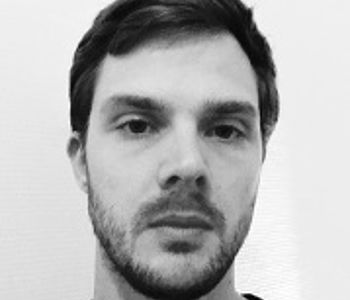Dr. Nicolas Schneider | Assoziierter Forscher

Mutterinstitut
:
Leuphana Universität Lüneburg
|
Position
:
Wissenschaftlicher Mitarbeiter
|
Fachbereich
:
Philosophie
,
Sozialwissenschaften
,
Politikwissenschaft
|
Biographie
Ausbildung
2021 PhD Philosophy, Centre for Research in Modern European Philosophy, Kingston University London, UK
2014 MSc European Studies, London School of Economics and Political Science, UK
2013 BSc Sozialwissenschaften, Universität zu Köln, Deutschland
Weitere Auslandsaufenthalte
11/24-02/25 Visiting Research Fellow, Department of Philosophy, The University of Warwick, UK
01-05/2019 Visiting Researcher, Department of Philosophy, DePaul University Chicago, USA
Stipendium
2016-2019 Kingston University Studentship
2020 Bourse fin de thèse, Centre Marc Bloch
2022 Bourse rédaction projet postdoc, Centre Marc Bloch
Forschungsthema
Widerstand als Begriff und Phänomen
Titel der Dissertation
The Place of Resistance in Phenomenology and Critical Theory: Thinking opposition after Kant
Zusammenfassung der Dissertation
This thesis explores the philosophical ambiguity and reflexivity of resistance through an investigation of its place. The place of resistance becomes relevant as the intersection of diverse manifestations of resistance and the conceptual reflection through which they come to be explained. Place here denotes a moment of orientation in which reflection and determination coincide and which produces the opposition between resistance and that to which it resists. For my investigation into the structure of this place and its ambiguous entanglement within that to which it resists, I draw on the confrontation between Heideggerian phenomenology and Frankfurt School critical theory and their respective readings of Kant. I ground my argument in an analysis of Kant’s critique of amphiboly in the Critique of Pure Reason. In Kant’s argumentative strategy to counter the amphibolous use of the understanding, I identify two conflicting directions that find expression in the entwinement of reflection and determination in ‘transcendental place’. I contend that Kant’s argument relies on an experience of incongruity that remains external to the philosophical argument, and that this pattern is instructive for understanding the place of resistance. I flesh out the nexus of philosophy and politics thus opened up by tracing the persistence and transformation of amphiboly in Heidegger’s philosophy and Reiner Schürmann’s reading of it. While Heidegger politicises place by turning it into the concrete standpoint from which to oppose modernity, Schürmann reflexively historicises place as the conflictual temporal site of philosophy and politics characterised by a discordant double bind. To further contrast Heidegger’s determination of place as concrete, I then turn to the status of abstraction in the constitution of the place of resistance. With reference to Alfred Sohn-Rethel and Moishe Postone, I argue that any opposition conceived on the basis of a concrete standpoint risks obliterating the abstractions that underpin even what presents itself as most concrete. While Sohn-Rethel’s affirmation of production remains in thrall to the capitalist metaphysics of labour, Postone’s notion of a dynamic concrete-abstract antinomy contributes an important dimension to the conceptual framework for the analysis of the place of resistance. I put Postone’s critique of simple opposition to work by analysing antisemitism as a form of opposition that fails to construct a resistant standpoint, arguing that the paranoid mode of thinking driving antisemitism can be understood in terms of amphiboly and that it plays a crucial role in the reproduction of modern capitalist society. In conclusion, and to contrast antisemitism, I bring together Schürmann’s and Postone’s emphases on the temporal character of modern capitalist domination to briefly sketch an emancipatory orientation of resistance that challenges amphiboly based on a twofold provisional judgement in and on time.
Institution der Dissertation
Betreuer
A philosophical and political history of diremption
Publikationen
Single-author articles / book chapters:
'Resisting Foundations: Politics between Determinate Negation and the Ultimate Double Bind', Philosophy and Social Criticism, forthcoming. DOI: 10.1177/01914537241308104.
'On Economic Anarchy: Originary Practice and The Discordance of Times', Philosophy Today 68, 4, 2024: 785–800. DOI: 10.5840/philtoday20241125546.
'Topologies of Judgement: Arendt, Schürmann, and Shell on the Politics of Kantian sensus communis', in Jussi Palmusaari and Nicolas Schneider (eds.), Possibilities of Place in Continental Thought: Critique, Politics, Philosophy, 81–103. London: Bloomsbury, 2024.
'Zur Spaltung des Verstandes: Das Prinzip der Anarchie und die Kritik epochaler Ökonomien', in Reiner Schürmann, Diskordanz der Zeiten, 195–208. Zurich: diaphanes, 2024.
'The Place of Marx in Reiner Schürmann’s Work: On the Tenacious Life of Ghosts', Graduate Faculty Philosophy Journal 42, 1, 2021, 117–148. DOI: 10.5840/gfpj20214216.
As editor:
Possibilities of Place in Continental Thought: Critique, Politics, Philosophy, with Jussi Palmusaari. London: Bloomsbury, 2024.
Reiner Schürmann, The Place of the Symbolic. Essays on Art and Politics, with Kieran Aarons. Zurich: diaphanes, 2024.
Reiner Schürmann, Diskordanz der Zeiten. Zurich: diaphanes, 2024.
Reiner Schürmann, Reading Marx. On Transcendental Materialism, with Malte Fabian Rauch, Zurich: diaphanes, 2021.
Reiner Schürmann, Tomorrow the Manifold. Essays on Foucault, Anarchy, and the Singularization to Come, with Malte Fabian Rauch, Zurich: diaphanes, 2019.
Reviews:
'Sandro Mezzadra and Brett Neilson, The Politics of Operations: Excavating Contemporary Capitalism', Graduate Faculty Philosophy Journal, Volume 41, Issue 1, 2020, 326–329.
'Utopia from Thomas More to Walter Benjamin, by Miguel Abensour', LSE Review of Books, 2018, here.
Translations:
Gianni Carchia, '“An Eschatological Kantianism”: On Reiner Schürmann’s Heidegger on Being and Acting: From Principles to Anarchy', with Francesco Guercio and Ian Alexander Moore, Philosophy Today 68, 4, 2024. DOI: 10.5840/philtoday202411154. [from Italian]
Reiner Schürmann, Diskordanz der Zeiten. Zurich: diaphanes, 2024. [from English]
Coralie Camilli, Kampfkunst Leipzig: Merve, 2021. [from French]
Jürgen Habermas, 'The Story of the Two Revolutions'. Philosophy Today, 64:2 (2020), 493–498. DOI: 10.5840/philtoday202051337. [from German]